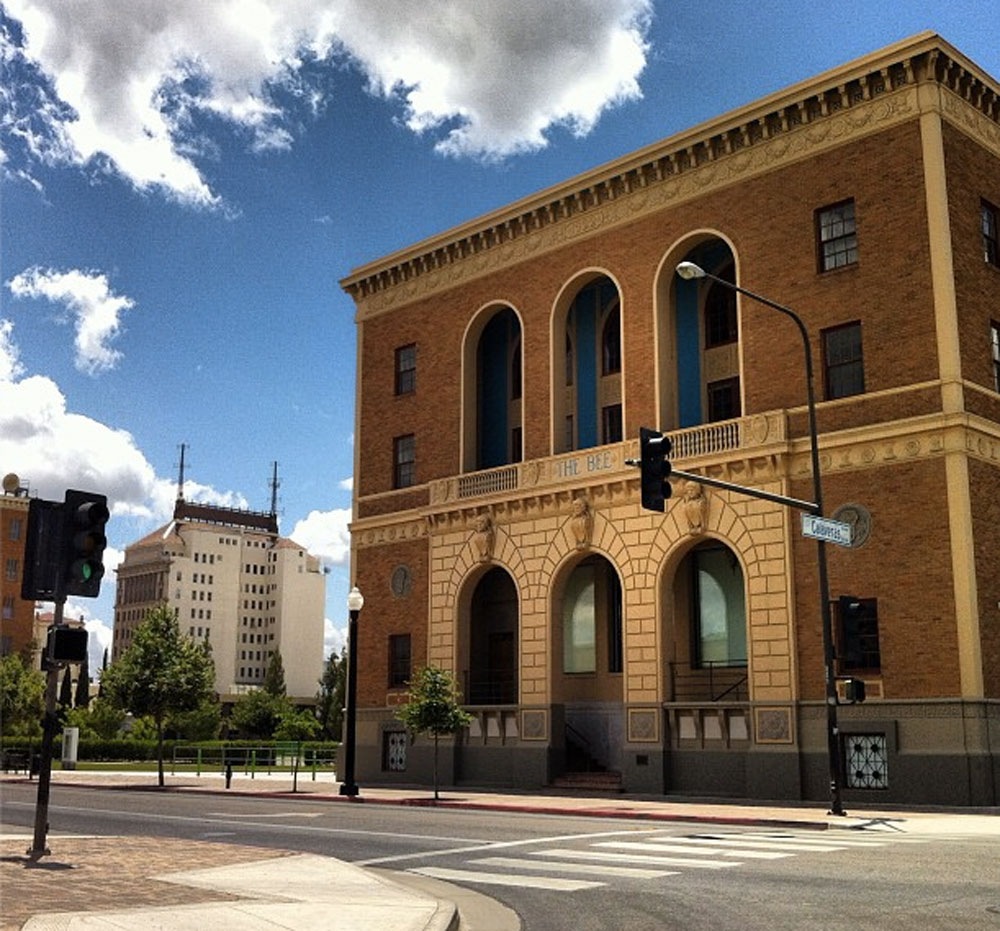
October 2, 2019; Digiday
Founded in 1922 with Carlos K. McClatchy as editor, the Fresno Bee is a leading news source for California’s San Joaquin Valley, covering a six-county area that is one of the fastest-growing regions in the state. Like many other news outlets nationwide, the Bee has struggled with questions about how to simplify navigation for online readers and how to maintain its sharp focus on relevant news for readers of both its daily print and digital editions. In an era when so many are looking to the private sector and booming fields like the tech industry for answers, the answer that the Bee came to might seem surprising: the creation of a new nonprofit education initiative called Education Lab that aims to spotlight education issues critical to the advancement of area residents.
Laying the groundwork for the importance of a renewed focus on education in this region of the country, where both population growth and poverty are at high levels, at the Fresno Bee’s Education Summit last month, California State University chancellor Timothy P. White addressed the importance of “authentic access” to higher education for area students. White pointed out that labor market trends predict that, by 2030, the state will have a shortage of workers with bachelor’s degrees. The other central challenge for the system according to White is structural; the university turned down 8,000 students last year because it didn’t have space to educate them.
Executive editor Joe Kieta explains that “for generations, Fresno and the central San Joaquin Valley have lagged behind the rest of the state in key metrics of educational attainment,” but that, like other news organizations, at the Bee, “We’ve always covered school boards and government accountability around public education.”
Sign up for our free newsletters
Subscribe to NPQ's newsletters to have our top stories delivered directly to your inbox.
By signing up, you agree to our privacy policy and terms of use, and to receive messages from NPQ and our partners.
Marking a significant shift in editorial direction, Kieta notes that the Bee will be “flipping the switch” with Education Lab and introducing a new team of four journalists who will cover education with a solutions journalism approach. As part of the Bee’s effort to be responsive to the changing needs of its community, all Education Lab content will be translated into Spanish online, available for republishing to other local partner media outlets, and reproduced in an online newsletter for regular readers.
The Fresno Bee has modeled its new initiative after the Seattle Times’s Education Lab, which was established in 2013 to connect parents, students, and educators to drive innovative solutions; it has since grown into a robust national model. Even with Seattle not too far away, Kieta notes that his team worked for a year locally in the Fresno area with community partners to “listen, learn, and shape our next steps.” As key partners, the Fresno Bee looked to the Central Valley Community Foundation, Fresno State, and State Center Community College District, among others. A new fund at the Central Valley Community Foundation, the Impact Media Fund, which draws on a range of public and private sources, will support projects and programs that drive transformation and improve the Central Valley community as a whole.
According to Keita at the Bee, the first year of funding for Education Lab has already been secured and his team is now moving to raise funds for year two. Education Lab has also been upfront from the start about the clear separation between editorial decisions and funding.
Ultimately, Kieta at the Bee and McClatchy as a whole will be watching digital numbers of paying and newsletter subscribers in the hope that they increase with this new initiative. Lauren Gustus, regional editor of McClatchy’s California, Idaho, and Washington news operations, told Digiday, “By delivering focused reporting and community engagement, we feel like the value we’re bringing will lead to an increase in digital subscription support.” We will be interested to follow Education Lab’s coverage, along with the solutions they feature in the months ahead.—Anne Eigeman













